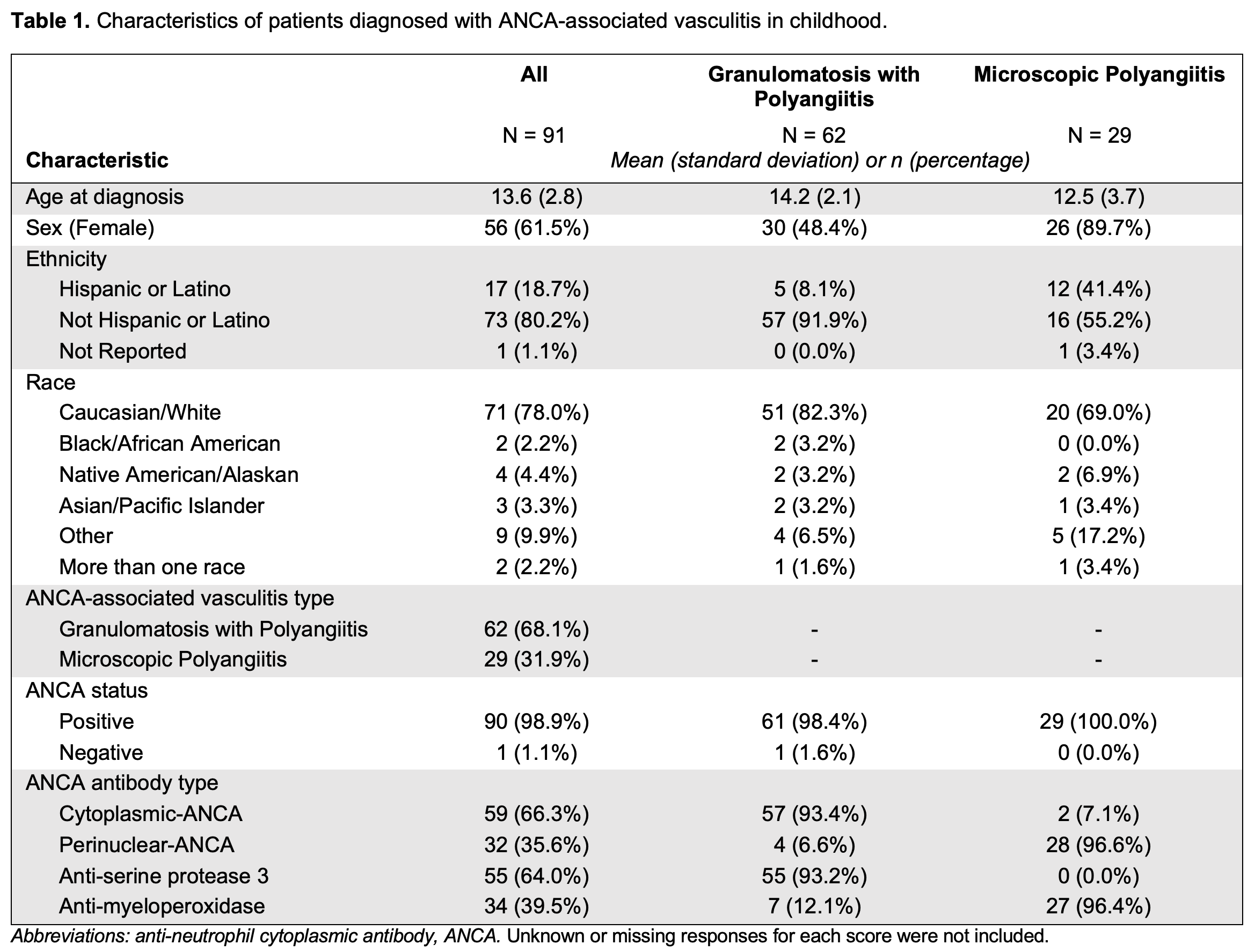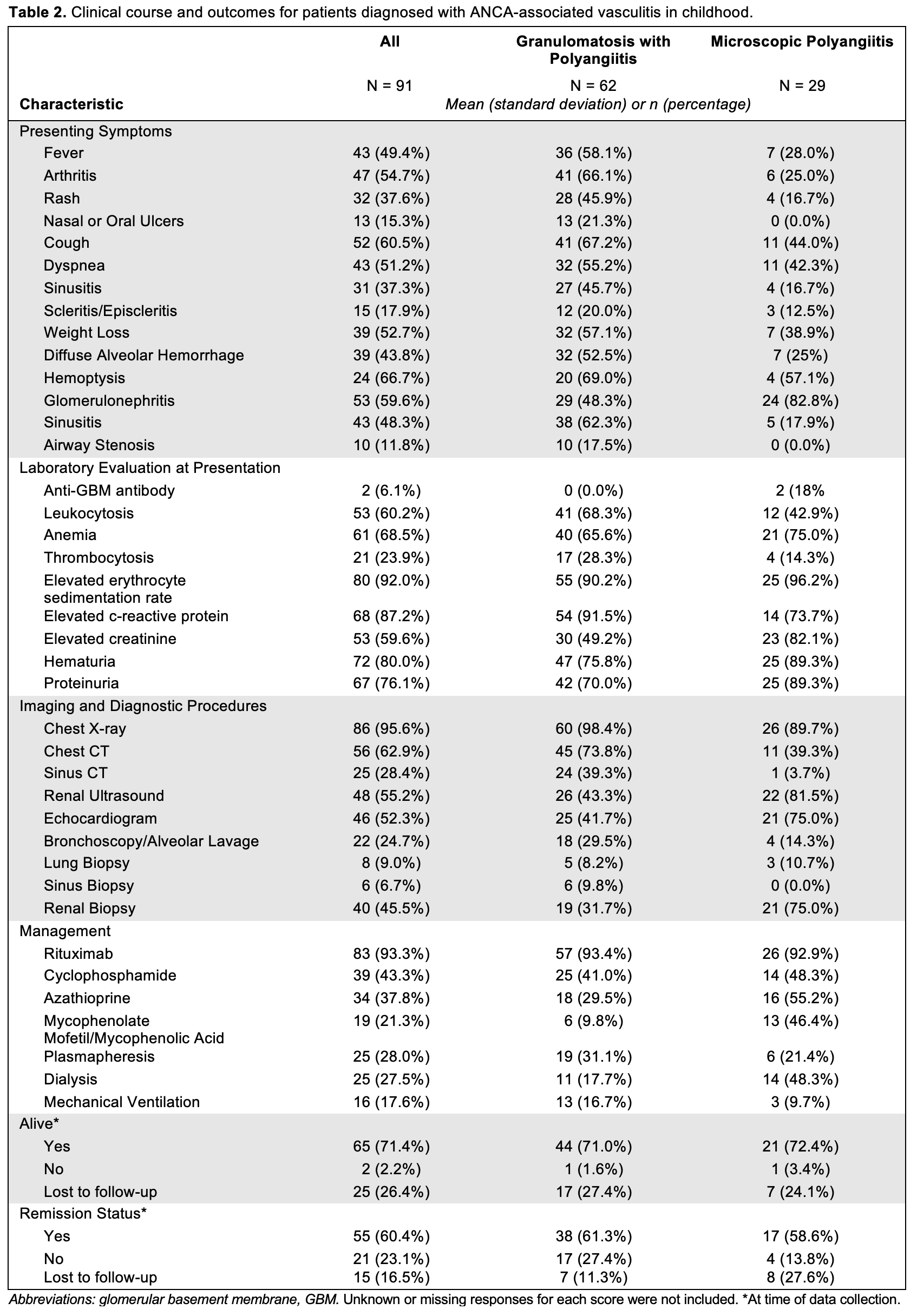Session Information
Session Type: Poster Session C
Session Time: 10:30AM-12:30PM
Background/Purpose: Anti-neutrophil cytoplasmic antibody-associated vasculitis (AAV) is an understudied, chronic inflammatory disease in children with significant morbidity and mortality. There are few large pediatric cohorts described and no large observational studies or randomized controlled trials to guide management. Our hospital serves the vasculitis community across a seven state catchment area in the United States.
Methods: Retrospective chart review was completed using electronic medical records of patients managed from 2002-2023 at a single institution. Patients diagnosed with AAV at less than 18 years old were identified using ICD-9 and -10 diagnosis codes and confirmed by provider documentation. Data was manually entered into a HIPPA-compliant REDcap database. Descriptive statistics were completed to determine means and proportions.
Results: There were 91 children with AAV identified, 62 (68.1%) with granulomatosis with polyangiitis (GPA) and 29 (31.9%) with microscopic polyangiitis (MPA) (Table 1). Eight patients had eosinophilic GPA and were not included for analysis. Seventy-four children were diagnosed after 2010. The cohort is demographically diverse with a mean age of 13.6 years at diagnosis. The majority were female. Many patients were severely ill at presentation with diffuse alveolar hemorrhage (43.8%), glomerulonephritis (59.6%), and airway stenosis (11.8%) and required mechanical ventilation (17.6%) and dialysis (27.5%). Lab abnormalities were common (Table 2). Many patients underwent chest CTs (62.9%) and tissue biopsies, including lung (9%), sinus (6.7%), and renal (45.5%) biopsies. Almost all patients received rituximab (93.3%) while cyclophosphamide (43.3%), azathioprine (37.8%), and mycophenolate (21.3%) were also received.
Conclusion: This is one of the largest described single center cohorts of children diagnosed with AAV. Many children presented with severe manifestations including diffuse alveolar hemorrhage, glomerulonephritis, and airway stenosis requiring intubation and dialysis. Improved understanding of disease presentation and outcomes is vital for moving the pediatric vasculitis community forward.
To cite this abstract in AMA style:
Bloom J, Monley A, Reingold S, Fuhlbrigge R, Merkel P. Large Pediatric Cohort with ANCA-associated Vasculitis at a Single Institution: Patient Characteristics, Clinical Course, and Outcomes [abstract]. Arthritis Rheumatol. 2024; 76 (suppl 9). https://acrabstracts.org/abstract/large-pediatric-cohort-with-anca-associated-vasculitis-at-a-single-institution-patient-characteristics-clinical-course-and-outcomes/. Accessed .« Back to ACR Convergence 2024
ACR Meeting Abstracts - https://acrabstracts.org/abstract/large-pediatric-cohort-with-anca-associated-vasculitis-at-a-single-institution-patient-characteristics-clinical-course-and-outcomes/


